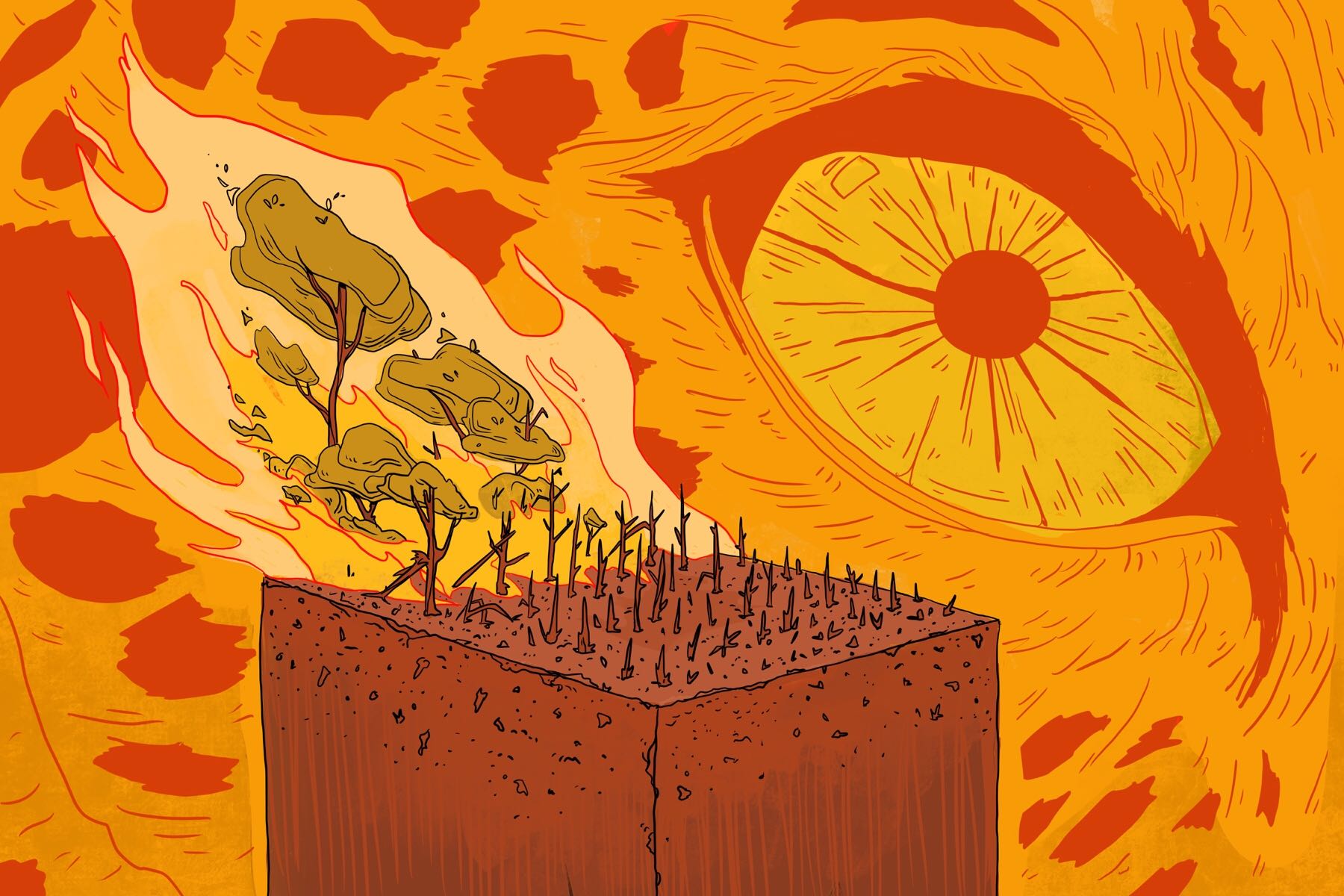On April 15, 2019, the Parisian symbol of Catholicism was engulfed in flames, leaving behind a grave of ashes and broken history. Instantly, millionaires spanning the globe united in a financial effort to restore the Notre Dame, ultimately raising $835 million to save the building’s history. Fast forward to August 2019: The Amazon rainforest is burning. The home to more than 20 million people and the source of 20% of the world’s oxygen. The most biodiverse ecosystem on the planet has been burning for weeks and no one seems to care.
Coined “the lungs of the planet,” the Amazon rainforest is integral to humanity’s livelihood through its hefty provision of oxygen. Not only does it breathe life into everyone’s lungs, but it is also a way of life to millions of people.
Sixty percent of Brazil’s indigenous population lives in the Amazon rainforest. Of that 60%, roughly 400 tribes exist — each with their own language and culture. In the past 500 years, some of these tribes have had contact with people outside the Amazon rainforest. Others have had no contact as they reside deep in the interior.
Regardless of the type of tribe or its residential location, these indigenous people are accustomed to calling the Amazon rainforest their home. Though fires in the rainforest are expected, they have never grown to this present magnitude. The fires blazing the Amazonians’ longtime communities are killing their cultures, history and, in some cases, people.
Forest fires are not unusual around cooler times of the year; however, the distinction between the uproar of the ongoing forest fires versus those in previous seasons is because of the cause of these current fires.
Amid cool, dry seasons, forest fires do occur naturally in the Amazon. This time around, people are deliberately burning down the Amazon rainforest because Brazil’s president, Jair Bolsonaro, is endorsing deforestation efforts to expand his nation’s cattling industry.
Bolsonaro has garnered immense criticism from Brazilian citizens for his far-right political views. One of his views has cultivated the international crisis that is the Amazon forest fires.
Throughout his presidency, Bolsonaro has weakened Brazil’s national environmental agency, IBAMA, while also encouraging Brazilian farmers to demolish land within the Amazon rainforest for agricultural expansion.
Bolsonaro’s carelessness toward environmental protection has communicated to impoverished farmers that clearing forestry is tenable. As a result, farmers have taken the initiative to set fires upon the rainforest, which are becoming increasingly uncontrollable.
The Amazon rainforest is in immense danger. The destruction caused is irreversible, the land burned irreplaceable. The issue is becoming so dire that high-profile celebrities such as Madonna and Leonardo DiCaprio are urging their supporters to take swift action against the rapidly multiplying fires.
DiCaprio pledged $5 million to the Amazon Forest Fund. Yet making a substantial donation is not the only solution. For those seeking ways to preserve the remaining rainforest space, there are attainable measures for continued promotion of environmental conservation.
The following 3 suggestions are feasible for anyone with limited means who are seeking to help:
1. Support Rainforest Action Network
The Rainforest Action Network (RAN) is an environmental organization with a goal of protecting rainforest land and challenging corporate power. Ever since the onset of the Amazon rainforest fires, RAN has encouraged those concerned to act.
A tip recommended by RAN involves supporting the Amazon Watch, an organization working to protect both the rainforest and the rights of indigenous peoples in the Amazon Basin.
Another way to help RAN counteract rainforest destruction is by donating to their Protect-an-Acre program. The funds allocated toward Protect-an-Acre go directly toward protecting the land that indigenous tribes live on.
According to RAN, “Supporting the land rights of Indigenous Peoples is the most effective method of protecting rainforests … and fighting to stop this destruction.”
2. Reduce Meat Consumption
Most of the United States’ fast-food industry meat comes from Brazil’s beef farmers. Consequently, with the high demands for meat coming from affluent nations, Brazil must match it with their supply.
Once Brazilian cattle ranchers run out of land, they must inevitably clear even more ground for continued engagement with the meat industry. This is largely how the Amazon rainforest fires began.
Finland has already taken to limiting its consumption of meat and urges nearby nations to follow suit. The country’s finance minister went so far as to call for the European Union to “urgently review the possibility of banning Brazilian beef imports.”
Of all the countries, Brazil exports the most beef. By increasing the effort on both an international and individual scale to limit the consumption of animal products, Brazil’s meat industry will not have to harm rainforest at such an expeditious rate. Alternatively, the largest meat exporter can instead adopt more efficient methods for utilizing the space they already have.
3. Exercise Your Right To Vote
Voting always has ramifications. The decisions politicians make directly impacts their constituents’ futures. The electorate’s consequences speak volumes as to how the future will unfold.
Considering the Brazilian president’s lax environmental policies are largely to blame for the Amazon rainforest fires, it is evident that voting makes a difference.
Voting for presidential candidates and congressional representatives who support environmental action and address the seriousness of climate change makes a difference in preservation. However inconsequential it might seem, it is important to be aware of local and state elections, both in the United States and abroad.
Stay involved in the upcoming 2020 Democratic primaries, and, by extension, the 2020 general elections. Research prospective candidates, then make properly educated decisions in who to appoint for the fight of a lifetime.
The Notre Dame is loved because it tells the story of humanity. But what purpose do its stories serve once humanity ceases to exist? When the Earth’s ashes join those of the beloved Notre Dame, not one single dollar will be able to save it then.
















